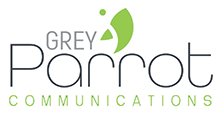Writing is like a journey; you take your reader along a path and you describe the sights as you go. As a content creator, you want to make sure that they understand what they are seeing and who the players are in the story. Above all, you want to make sure you are presenting information in a logical sequence so your readers can follow. I believe this rule applies whether you are recounting a case study, or simply providing information about a product or service. The last thing you want is for your reader to become confused.
One way to avoid reader confusion is to be consistent with terms. Once you have defined something by a name, make sure you use that name consistently. For example, if you have referred to a group as “millennials”, you should avoid referring to them by another term, such as young adults, or Gen Y-ers. The term “millennials” should act as a label or even as a proper pronoun.
While it may be clear in your mind that these groups are all the same, your readers may not share your view. Referring to this group as millennials in one paragraph and then Gen Y-ers in another may lead your readers to question whether this is the same group. You want your writing to be clear but if readers are confused about who you are referring to, clarity is lost.
It is difficult enough to get someone to commit to reading your content, the last thing you want is to lose them halfway through the article. Having a reader pause while reading or go back to re-read the paragraph because they don’t understand means you haven’t done your job well.
What about synonyms, you may say? We were taught to avoid using repetitive words in our writing because it becomes boring. You can still use synonyms for your verbs or adjectives, simply avoid them when you are referring to something you have labelled. Remember, this is not literature, this is marketing content. The purpose is to inform, educate or convince (though it’s even better if you can entertain in the process), so be consistent. Using different words may help make writing more interesting but may decrease clarity.
Marketing writing, like other types of writing, should be clear and concise. It should always consider the audience and utilize words that will resonate with that audience. This can be a delicate balancing act that requires experience, skill and a good vocabulary. More often than not, the best course of action is to hire a professional marketing writer. If you need good marketing content, I can help.



0 Comments